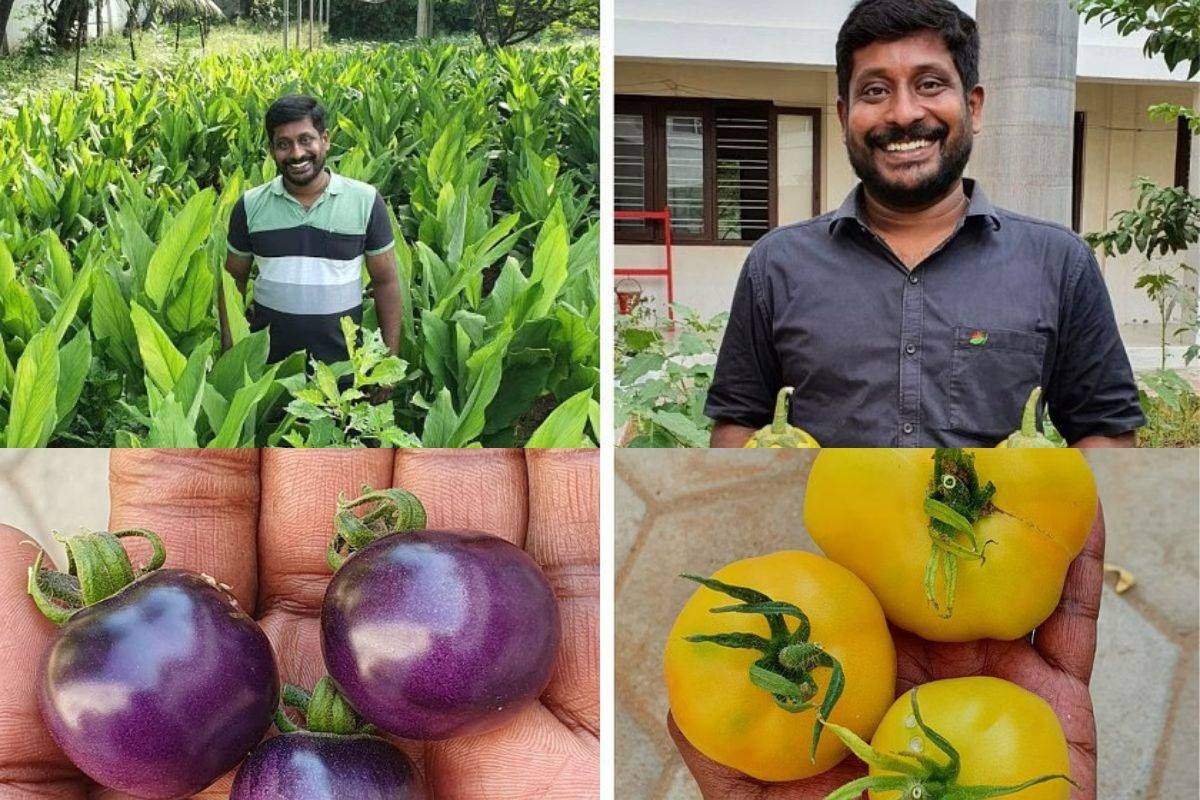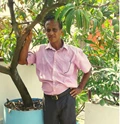
Were you aware that there are over 150 different types of pumpkins that exist globally? Moreover, did you know that there are more than 60 varieties of eggplants and over 10 types of okra? Unfortunately, despite their unique qualities, many of these varieties are at risk of extinction. Only the most common and popular types are sold in markets, leaving the rest with a dim future.
Aravinthan R P, a 38-year-old from Coimbatore, made it his mission to save as many vegetable varieties as possible. He left his job to pursue this passion and has since collected and planted numerous seeds, preserving close to 70 eggplant varieties, 20 okra types, 28 types of tomatoes, and 20 types of beans. Aravinthan says, “I never imagined that I would end up doing this, but life has worked out in a way that saving these seeds has become my passion.”
If you can't find authentic organic produce, why not grow your own?
Aravinthan, who grew up in the small town of Karur in Tamil Nadu, India, was always influenced by farming. After completing his engineering degree and a master's degree in Germany, he worked as a research assistant at the Karlsruhe Institute of Technology before returning to India in 2012.
Aravinthan's father managed a school in Coimbatore, and when they moved closer to it, they wanted to provide nutritious food for the school's residential students. They looked for organic vegetable sellers, but they couldn't find any proof that the produce was genuinely organic. As a result, they decided to grow their own food on the school's terrace.
He started small, planting a few vegetables using heirloom seeds and natural fertilisers, and gradually expanded the farm to the spare space near the playground. Today, the school produces around 2,000 kg of vegetables and beans per year, with hundreds of seeds collected and stored in the school's seed bank.
“All students participate in planting their food, with a program called agricultural sciences to encourage farming among young people. The students of the course help in planting the crops and harvesting them, while other kids occasionally lend a hand.”
Aravinthan also introduced grow bags to the students, which are kits with seeds and tools that allow the kids to sow their plants on campus and take care of them. The harvested seeds are then stored in the seed bank to help the children inculcate healthy farming habits.
'It is a service, not a business'
For Aravinthan, it is a service, not a business, and his motivation comes from his desire to give his kids a healthy diet and preserve the seed bank. He grows a range of vegetables, including tomatoes, eggplant, radish, okra, broad beans, chillies, drumsticks, pumpkins, and some pulses like green gram and pigeon pea lentils. Aravinthan uses natural fertilisers and nutrients and grows vegetables organically, without using any chemicals or artificial fertilisers. He believes that if you can find varieties of vegetables that are inherently pest-resistant, like onions, then there is no need to use pesticides or chemicals.
The school's produce is primarily consumed by resident students on a daily basis. Any excess is given to staff members, who may take it home and share it with neighbouring communities. Students set up stalls, offering free vegetables to their neighbours. Details about available produce are shared via a WhatsApp group for residents and neighbours.
Shweta Sharma, a Hindi teacher at the school for ten years, is pleased that the school began growing its food in 2015 and involves students in the process. Sharma believes that encouraging more students to learn about agriculture is critical, particularly in organic farming. Leftover produce is taken home by staff members, and Sharma raves about the freshness and quality of the school's vegetables.
“Whereas I and other enthusiasts who wish to preserve seeds are handed the seeds instead. We share them rather than sell them. For me, seed preservation is a service rather than a business,” says Aravinthan.
He wants to make farming profitable and attract more young people to the industry with this project.
"We want to cultivate corn in the future. Cross-pollination between various maize cultivars is extremely challenging to avoid. Yet, there are various ways to stop them, and I wish to discover them. I can only aspire to preserve as many vegetable varieties as I can and encourage more people to follow in my footsteps," he adds.










